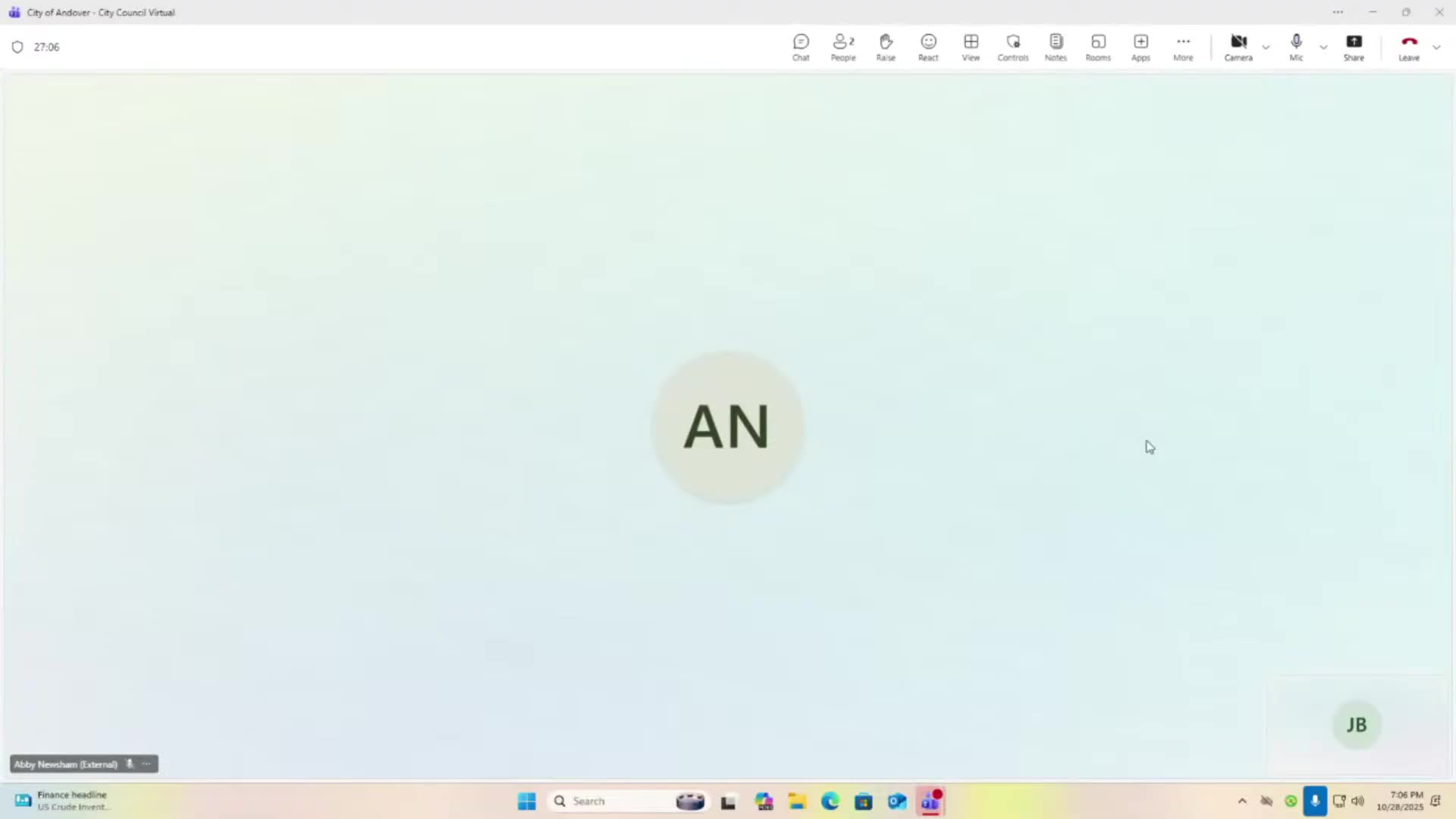Andover council approves contract with Olson to refresh Unified Development Manual
October 29, 2025 | Andover, Butler County, Kansas
This article was created by AI summarizing key points discussed. AI makes mistakes, so for full details and context, please refer to the video of the full meeting. Please report any errors so we can fix them. Report an error »

The Andover City Council on Oct. 28 approved a professional-services agreement with Olson Incorporated to update the city's Unified Development Manual (UDM), voting 6-0.
Julie Boyd, interim planning and zoning administrator, told the council the UDM is part of the city code and contains subdivision and site-plan regulations. "The idea with that was to separate it out of the pretty technical, you know, building code, and make it a more digestible format so that developers and and people living in the city can interpret the regulations in a way that's a little more plain English," Boyd said. She said the current UDM was put into practice in 2018 and has not been revised since adoption.
The contract follows an earlier RFP that drew no suitable responses. Boyd said staff reached out to Olson, which worked on Andover's comprehensive plan, and negotiated revised terms. Olson's representative, identified only as Abby during the meeting, said the scope would include a comprehensive assessment, three in-person stakeholder sessions, recommendations for immediate and phased changes, and an implementation strategy. Abby said the project would run about six months and would recommend which changes could be implemented through targeted ordinance amendments versus staff-managed, living documents.
Councilmembers focused questions on how the update would affect checklists and the ability to change administrative forms without re-adopting an ordinance. Les Manges, director of community development, explained, "The UDM is adopted by ordinance. So it's law that would have to be changed by ordinance. So it's it's not really a living, breathing document. It's a snapshot. The checklist type of things that Mike referred to would not necessarily have to be a part of that ordinance document." Manges and Boyd said moving extensive checklists out of the ordinance and keeping them as staff-maintained forms is a common practice and would allow more frequent updates.
Councilmember Paul Wimmer asked whether reimbursable expenses were included in the contract total; he noted the staff memo referenced "30,000 and some odd" and asked whether underruns would be refunded and overruns billed. Abby said reimbursable expenses were expected to be mileage and occasional overnight and meal costs for staff attending in-person sessions, and that the firm would manage those internally and would not bill the city beyond the agreed scope without appropriate contract language.
Councilmember Homer moved to approve the agreement with Olson Incorporated and Phil Hamlet seconded. The motion passed 6-0.
The contract was presented as a "refresh" rather than a wholesale rewrite; staff said the work aims to correct internal inconsistencies (for example, mismatched tables across chapters), reduce the number of recurring zoning variances by clarifying standards, and improve the user experience for applicants and developers. The council directed staff and the consultant to return as needed with recommended ordinance amendments for formal adoption.
Julie Boyd, interim planning and zoning administrator, told the council the UDM is part of the city code and contains subdivision and site-plan regulations. "The idea with that was to separate it out of the pretty technical, you know, building code, and make it a more digestible format so that developers and and people living in the city can interpret the regulations in a way that's a little more plain English," Boyd said. She said the current UDM was put into practice in 2018 and has not been revised since adoption.
The contract follows an earlier RFP that drew no suitable responses. Boyd said staff reached out to Olson, which worked on Andover's comprehensive plan, and negotiated revised terms. Olson's representative, identified only as Abby during the meeting, said the scope would include a comprehensive assessment, three in-person stakeholder sessions, recommendations for immediate and phased changes, and an implementation strategy. Abby said the project would run about six months and would recommend which changes could be implemented through targeted ordinance amendments versus staff-managed, living documents.
Councilmembers focused questions on how the update would affect checklists and the ability to change administrative forms without re-adopting an ordinance. Les Manges, director of community development, explained, "The UDM is adopted by ordinance. So it's law that would have to be changed by ordinance. So it's it's not really a living, breathing document. It's a snapshot. The checklist type of things that Mike referred to would not necessarily have to be a part of that ordinance document." Manges and Boyd said moving extensive checklists out of the ordinance and keeping them as staff-maintained forms is a common practice and would allow more frequent updates.
Councilmember Paul Wimmer asked whether reimbursable expenses were included in the contract total; he noted the staff memo referenced "30,000 and some odd" and asked whether underruns would be refunded and overruns billed. Abby said reimbursable expenses were expected to be mileage and occasional overnight and meal costs for staff attending in-person sessions, and that the firm would manage those internally and would not bill the city beyond the agreed scope without appropriate contract language.
Councilmember Homer moved to approve the agreement with Olson Incorporated and Phil Hamlet seconded. The motion passed 6-0.
The contract was presented as a "refresh" rather than a wholesale rewrite; staff said the work aims to correct internal inconsistencies (for example, mismatched tables across chapters), reduce the number of recurring zoning variances by clarifying standards, and improve the user experience for applicants and developers. The council directed staff and the consultant to return as needed with recommended ordinance amendments for formal adoption.
View full meeting
This article is based on a recent meeting—watch the full video and explore the complete transcript for deeper insights into the discussion.
View full meeting
